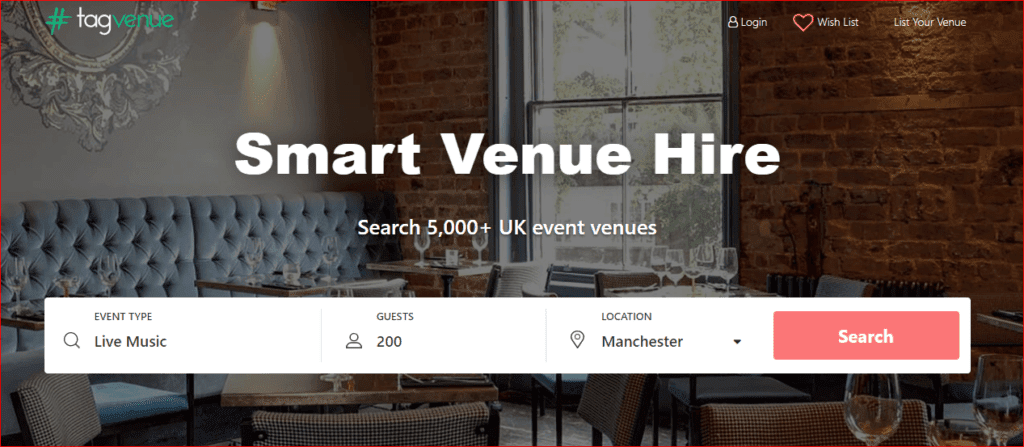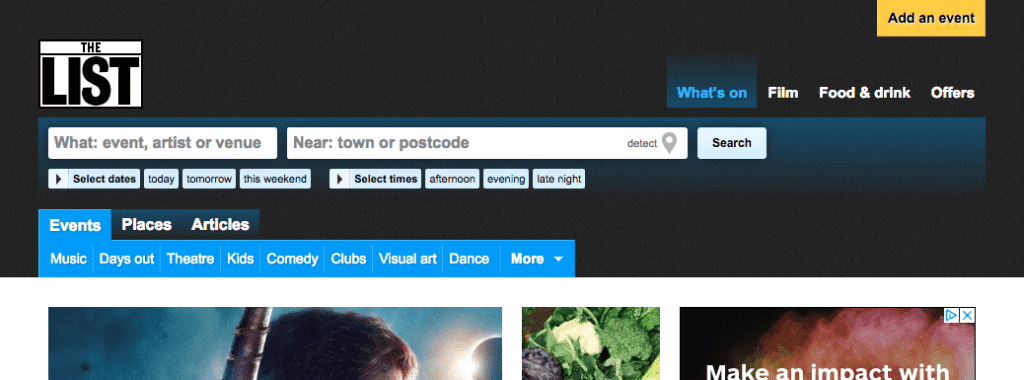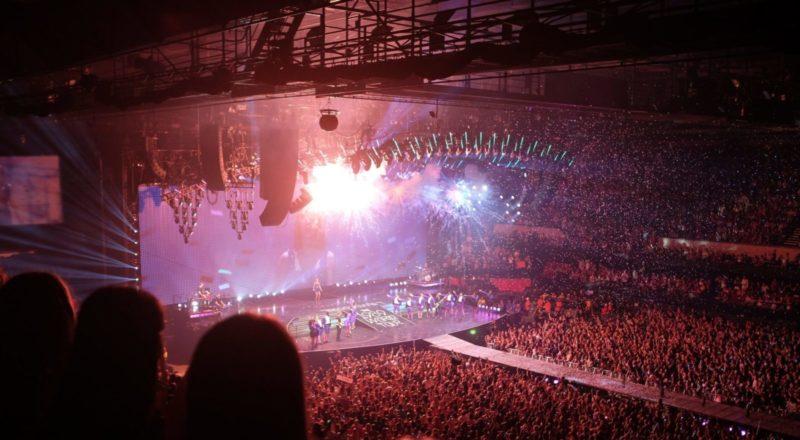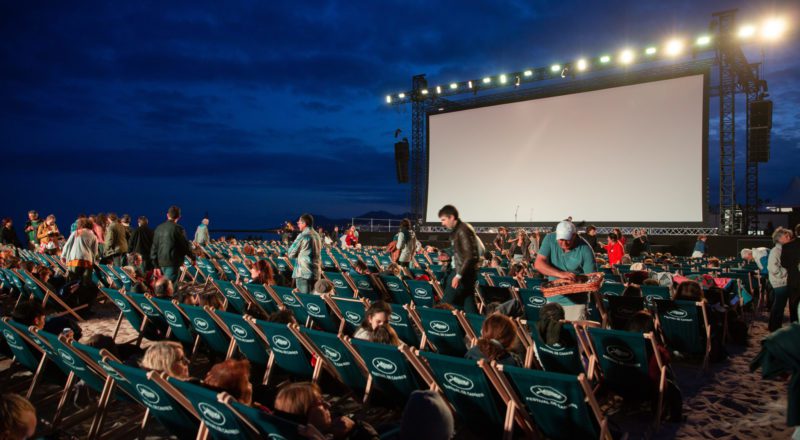Finding the right venue is rarely straightforward. Every event has its own requirements.
Selecting a venue that’s big enough (and is available) can be a challenge. Consider some of the questions you need to ask yourself as an event organiser and you will see how tough the process can be.
Does the venue have the right tech setup? Is it easy to access? Is it staffed? Do I need to bring any equipment? It is easy to send yourself into panic stations with everything you need to think about. Our tips are designed to make your life easier.
There are two aspects to consider:
- What the process of finding a venue looks like.
- How to evaluate venues for suitability.
Billetto is a ticketing platform that helps you manage, promote, and host events. Set up an event page and start selling tickets in 5 minutes.
CREATE YOUR EVENT >>
The process of finding an event venue
What steps should you take to find the right venue? Where does the process start and end? Let’s take a look.
1. Start early
This cannot be stressed enough. A popular event venue can be booked up for months or even years in advance. On top of this, booking speakers, vendors, or performers is easier when you start early.
The more notice you have, the higher the chance of getting the right venue…and the less stressful the process will be.
2. Work to a set of criteria
Imagine going to a car dealership without considering what sort of MPG (Miles Per Gallon) or even how many seats you need. It would be foolish. You should be as prepared as possible.
That goes for venue search, too. You’ll need to create a list of criteria. This should cover everything from capacity to health and safety, distance from public transport and staffing.
To continue the metaphor, make sure you don’t leave the dealer with a sports car when you actually needed a functional family car.
Tip: For a good list of things to think about, take a look at “13 Important Things to Consider When Choosing Your Event Venue“
3. Set a budget
Having a budget is sensible advice in anything you do in business or life. This is part of your criteria, but deserves its own section. Not only should you budget for the venue hire itself but also for any security considerations, staffing, and licensing.

Tip: Here’s a great tool to help you create a budget for your next event (including the venue).
4. Shortlist and reach out
It can be very tempting to just find a venue which seems appropriate and go for it. It will mean fewer hours of discussions and evaluating, but it can also mean getting a raw deal and not noticing.
Finding just one venue is tough, but the task at hand is actually to find multiple events and whittle them down to the best one.
Once you’ve chosen a few spaces which fit your criteria, reach out to them for discussions.
They should want your business. For this reason, the venue may be willing to help with staffing and promotion. Discussions are also an opportunity to check things like equipment and what else they can offer.
A venue that understands your needs and is able to help with the extras will save a lot of stress.
Tip: Check out this article for tips on negotiating with venues.
5. Visit
It is something of a golden rule: Don’t book a venue without visiting it first. A visit can easily swing your decision one way or the other. Turn up and find there is no parking or access, rude staff, and broken equipment? It’s best to stay away.
Visits can be time consuming, but they have the added benefit of showing you whether or not the venue feels right for your event. Your gut feeling is important.
Tools for researching venues (and how to use them)
There are many tools that can help you find venues. Some are more obvious than others. The tools below should form at least part of your venue-sourcing arsenal.
1. Tagvenue
Tagvenue is an excellent tool for all sorts of events. They have a UK and Australian database and allow you to search over 5,000 venues.
Their search tool lets you enter the event type, number of guests, and desired location and it will bring you back suitable results. For instance, if you’re planning a live music concert for 200 guests in Manchester, enter these criteria for a ready-made shortlist.

You’ll also be able to filter the results you get. Relate these filters to your list of criteria. You can search by specific A/V equipment, alcohol licenses, security, and more.
Alternatively, Venue Scanner is another site with very similar functionality. If you are struggling to find results in your area, try their database, too.
2. Event listing websites
Event listing sites are places you can find lots of existing events. There is nothing wrong with getting inspiration from events similar to yours.
To reverse engineer listings, browse similar events in the relevant area. (All event listing sites let you filter results.)

You will quickly spot which venues are being used for similar events. Then you can create a list of venues to research.
This technique does require you to do a fair amount of legwork. But it does guarantee you are finding event venues that are active and in use in your industry.
Tip: There are hundreds of event listing sites out there. For 10 of the best ones in the UK, check out this guide.
3. Search engines
The advice here isn’t limited to Google, but let’s face it: Google is what you thought of.
Event planners have a love/hate relationship with Google. This is totally understandable.
It is still the best method of searching for just about anything. Venues are no different. You can get a ton of results with just a few keyword searches, but this can create more work.
A search for “music venue Birmingham” or “conference venue Southampton” will bring back many pages of matches to sift through.
Unfortunately, the venues that show up in your results will not have been filtered. You will have to do some digging to establish whether they are suitable.
Google also doesn’t guarantee that a venue that shows up on your search is active. You might be frustrated to find a venue that’s been closed for months.
Tip: To up your Google game, check out these “Google Search Hacks That’ll Make Your Life Easier“
Further considerations
Now you know the process of shortlisting venues and where to look for potential event spaces. Here are a few other considerations.
1. Target audience
A venue might appear perfect on paper but not have the right feel for your target audience. Putting on a metal gig? Don’t book it in a classical music venue. Booking an event for corporate high-flyers? Go upmarket. Consider what your target market expects.
2. Fill the room
If you’re expecting 100 attendees and find a 500-person capacity venue within budget, consider a smaller venue. It may seem counterintuitive (and having some wiggle room is fine), but a huge venue will make it seem like you have fewer guests rattling around in your event.
3. Amenities, vendors, and other services
Do you need food served at your event? Will you need tables and chairs or is it a standing event? Can security be provided by the venue? Establish what is on offer early to avoid a headache at a later date.
Tip: Add to event is an excellent website for finding vendors if you need to supply your own.
Billetto is a ticketing platform that helps you manage, promote, and host events. Set up an event page and start selling tickets in 5 minutes.
CREATE YOUR EVENT >>
Get venue hunting today
Armed with these tips, you can create a strong list of options and start to put feelers out. Being smart about it and establishing your needs early will save a lot of time and stress.
Once you find the right venue, go through these event planning tips to make sure you organise a roaring success. Happy venue hunting!





Leave a Reply